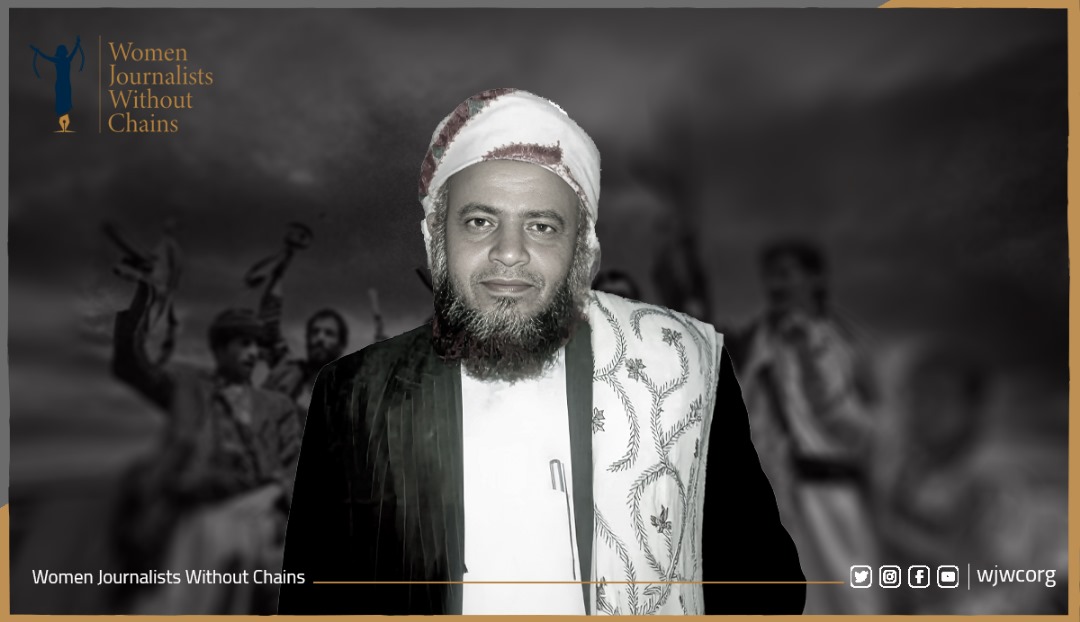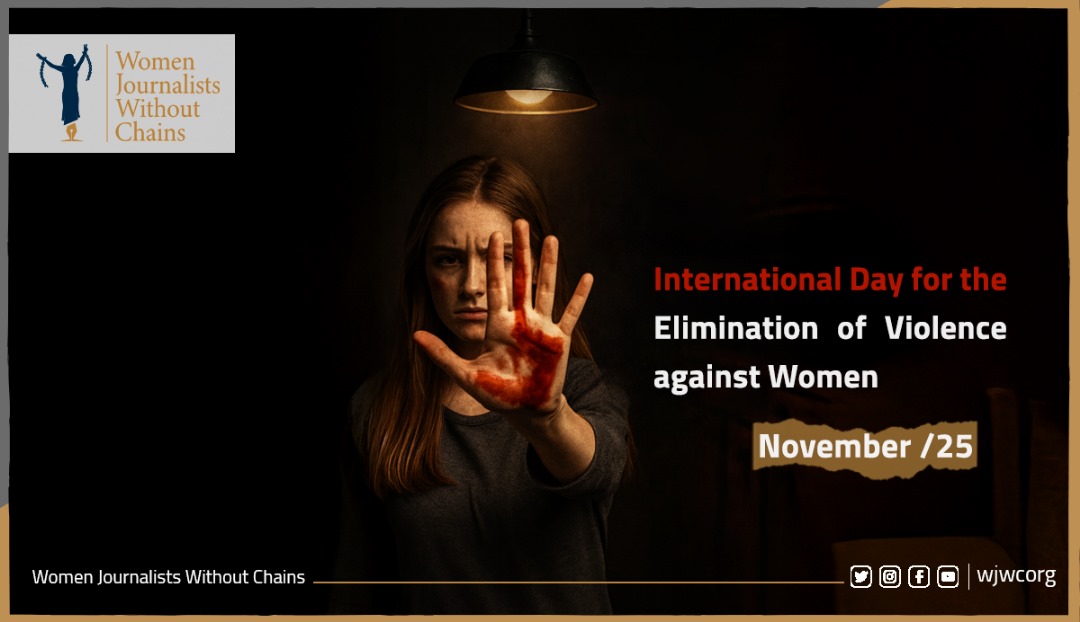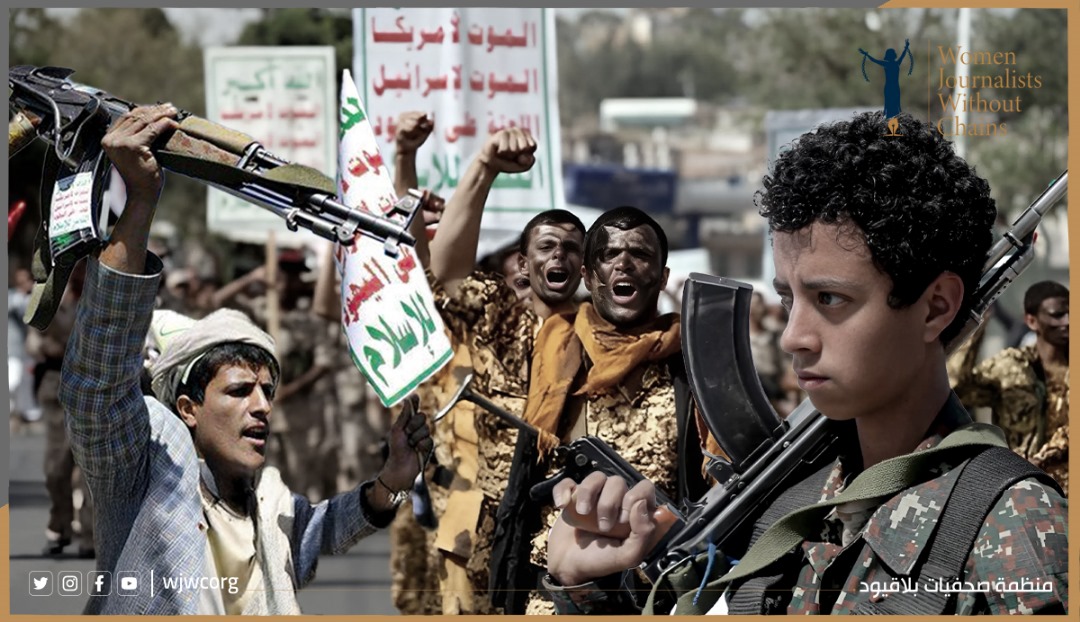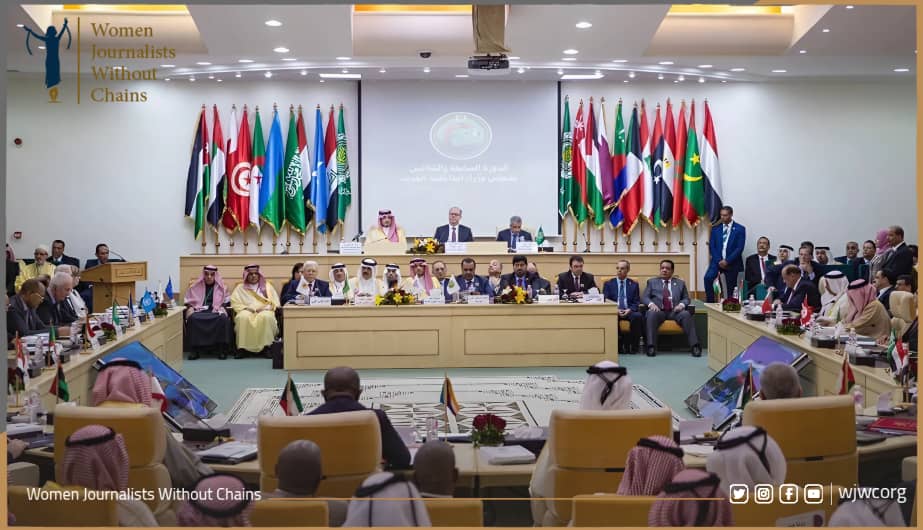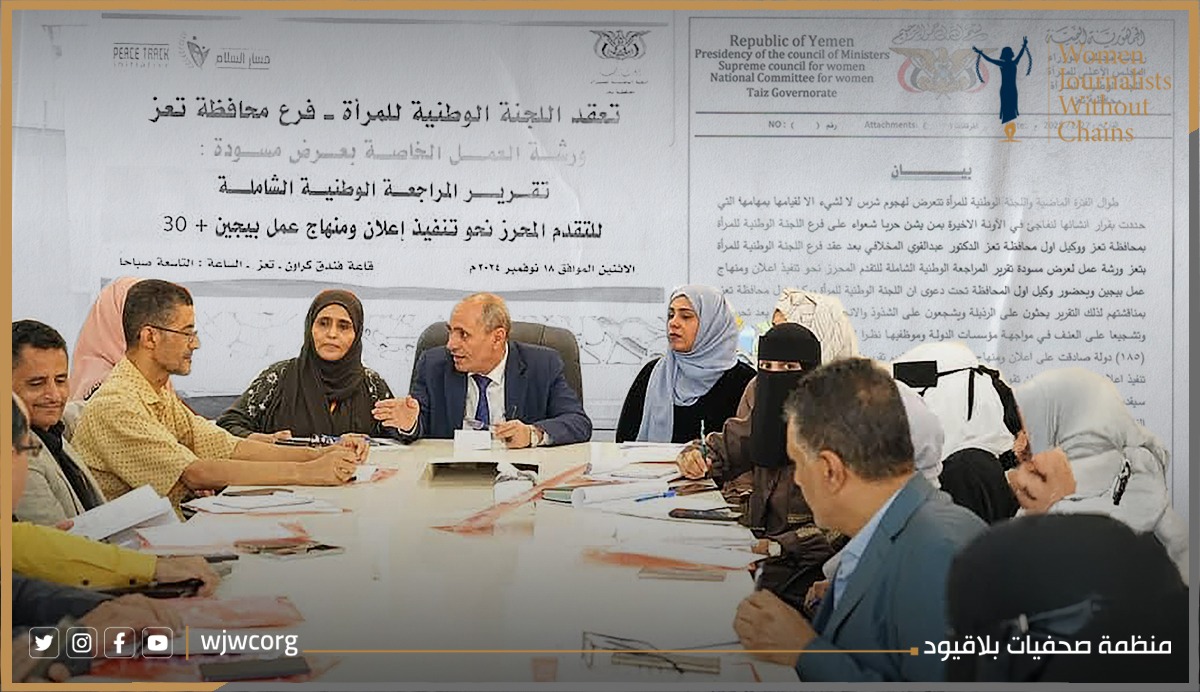Women Journalists Without Chains (WJWC) has strongly condemned what it described as a horrific war crime committed by the Houthi militia in Raimah Governorate.
The group denounced the assassination of Sheikh Saleh Ahmed Hantos, one of the region’s most respected Quran teachers and director of the Quran memorization center in Al-Salafiyah district, in an attack it said reflects the militia’s systematic pattern of brutality against civilians.
According to documented field testimonies received by WJWC, the Houthi militia carried out a large-scale military operation on the evening of July 1, targeting the village of Al-Mu’athab in the Bani Nafi' sub-district. The assault involved more than 50 military vehicles, with reinforcements from Dhamar and Al-Hodaidah governorates. Sheikh Hantos’s home was besieged and struck with RPGs and medium machine guns. The sheikh was killed instantly, sustaining multiple gunshot wounds to the head and chest.
The attack also left his wife seriously injured and his elderly mother wounded by shrapnel. Despite their critical condition, the Houthi forces reportedly denied them access to medical care. The militia further shelled the village mosque, destroyed the family’s water tank, and detained all village men — including the wounded — while looting homes and seizing property in what WJWC called a clear act of collective punishment.
In her statement on the crime, the head of Women Journalists Without Chains, Ms. Tawakkol Karman, condemned the Houthi militia’s continued campaign of violence. She said the group demonstrates time and again its unparalleled capacity for criminality and its utter disregard for the lives, property, security, and well-being of the Yemeni people. Karman emphasized that the deliberate targeting and killing of Sheikh Saleh Hantos reflects the militia’s complete contempt for moral values and national responsibility.
She further described the attack on peaceful civilians as a reprehensible act of terrorism, noting that history has shown such groups are ultimately doomed to vanish. Karman affirmed that the memory of Sheikh Saleh Hantos will live on as a lasting source of pride and honor for Yemenis, while this heinous crime will remain a stark testament to the brutality of the terrorist militia.
The organization asserted that the killing of Sheikh Hantos, the targeting of a place of worship, and the assault on civilians constitute a full-fledged war crime under Article 8 of the Rome Statute, and a grave breach of international humanitarian law, including the Geneva Conventions. WJWC noted that the deliberate denial of medical care and the refusal to return the sheikh’s body further compound these violations.
“This is not an isolated incident,” the statement continued. “It forms part of a systematic campaign by the Houthi militia to silence religious and educational voices and impose intellectual hegemony through violence.”
WJWC urged the United Nations, its human rights bodies, and the international community to launch an independent, transparent investigation into the assassination and associated abuses. The group demanded urgent action to ensure accountability, protect civilians, and prevent the recurrence of such atrocities. It also called for immediate pressure on the militia to release Sheikh Hantos’s body to his family and guarantee medical care for the wounded without obstruction.
The organization stressed that the UN Security Council must take a decisive stance to halt these crimes and ensure the perpetrators are brought before international justice, safeguarding both civilians and the dignity of the victims.

 Ar
Ar  En
En 